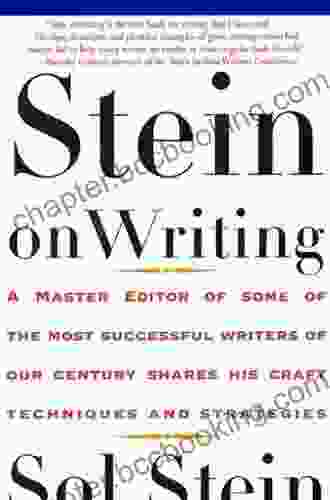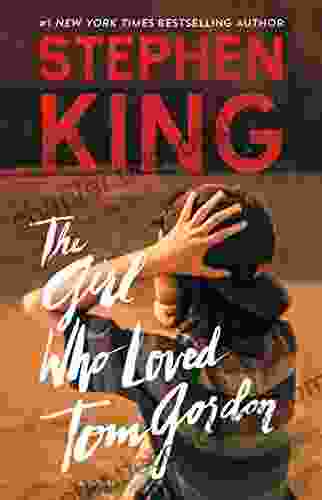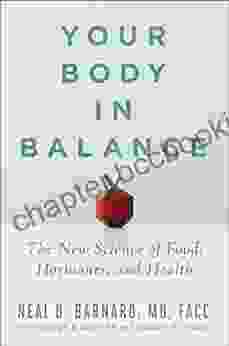Master Editor of Some of the Most Successful Writers of Our Century Shares His Secrets

Bob Books is a master editor who has worked with some of the most successful writers of our century. He has helped these writers to create compelling and successful work, and now he is sharing his secrets with you.
4.7 out of 5
| Language | : | English |
| File size | : | 692 KB |
| Text-to-Speech | : | Enabled |
| Screen Reader | : | Supported |
| Enhanced typesetting | : | Enabled |
| Print length | : | 322 pages |
In this article, Bob will share his insights on:
- The importance of story
- How to develop characters that readers care about
- The art of crafting compelling dialogue
- How to structure your writing for maximum impact
- The secrets of revision and editing
Whether you are a new writer or an experienced author, Bob's insights can help you to take your writing to the next level. So sit back, relax, and learn from the master.
The Importance of Story
Story is the heart of any successful piece of writing. It is what drives the reader forward and keeps them engaged. A good story will make the reader feel something, whether it is laughter, tears, or anything in between.
There are many different elements that go into creating a good story. These include:
- A strong plot
- Well-developed characters
- Compelling dialogue
- A satisfying ending
All of these elements are important, but plot is the foundation of any story. A strong plot will keep the reader guessing and wanting more. It will also provide the framework for the other elements of the story, such as character development and dialogue.
If you want to write a successful story, start by developing a strong plot. Once you have a plot, you can begin to develop your characters and dialogue. And finally, you can write a satisfying ending that will leave the reader feeling satisfied.
How to Develop Characters That Readers Care About
Characters are the heart of any story. They are the people (or animals) that the reader follows throughout the story. A good character will be well-developed and relatable. The reader will feel like they know the character and care about what happens to them.
There are many different ways to develop characters. One way is to start by asking yourself the following questions:
- Who is your character?
- What are their goals?
- What are their fears?
- What are their strengths and weaknesses?
Once you have answered these questions, you can begin to flesh out your character. Give them a backstory, a personality, and a voice. The more developed your characters are, the more the reader will care about them.
Another way to develop characters is to use the "iceberg method". This method involves only showing the reader a small part of the character's personality and backstory. The rest of the character's personality and backstory is left up to the reader's imagination.
The iceberg method can be effective because it allows the reader to feel like they are discovering the character along with the story. It also allows the reader to use their own imagination to fill in the gaps.
The Art of Crafting Compelling Dialogue
Dialogue is an essential part of any story. It is what brings your characters to life and allows the reader to hear their voices. Good dialogue will be自然, believable, and engaging.
There are many different ways to craft compelling dialogue. One way is to start by listening to the way people talk in real life. Pay attention to the way they use language, their tone of voice, and their body language.
Another way to craft compelling dialogue is to use the "show, don't tell" technique. Instead of telling the reader what your characters are thinking or feeling, show them through their dialogue.
For example, instead of writing "She was angry," you could write "Her voice was sharp and her eyes were narrowed." This shows the reader that the character is angry without having to tell them outright.
Finally, remember to keep your dialogue concise. Don't let your characters talk too much or too long. The best dialogue is short and to the point.
How to Structure Your Writing for Maximum Impact
The structure of your writing is important because it can affect the reader's experience. A well-structured piece of writing will be easy to read and follow. It will also build suspense and keep the reader engaged.
There are many different ways to structure your writing. One common structure is the three-act structure. This structure consists of:
- Act 1: The setup
- Act 2: The rising action
- Act 3: The falling action
Act 1 introduces the characters and setting. Act 2 develops the plot and raises the stakes. Act 3 resolves the plot and provides a satisfying .
The three-act structure is just one example of how you can structure your writing. There are many other possible structures, so experiment until you find one that works for you.
No matter what structure you choose, remember to keep the reader in mind. Your goal should be to create a story that is easy to read, follow, and enjoy.
The Secrets of Revision and Editing
Revision and editing are essential parts of the writing process. They allow you to improve your writing and make it the best that it can be.
There are many different ways to revise and edit your writing. One way is to start by reading your work aloud. This will help you to catch any errors in grammar, spelling, or punctuation.
Another way to revise and edit your writing is to get feedback from others. Ask friends, family members, or writing group members to read your work and give you their feedback.
Once you have received feedback, take some time to reflect on it. Consider the feedback and decide whether or not you agree with it. If you agree with the feedback, make the necessary changes to your writing.
Revision and editing can be a time-consuming process, but it is worth it. By taking the time to revise and edit your writing, you can improve its quality and make it more successful.
Bob Books is a master editor who has worked with some of the most successful writers of our century. He has shared his secrets in this article, and now it is up to you to put them into practice.
So what are you waiting for? Start writing today and see how Bob's secrets can help you to achieve your writing goals.
Thank you for reading!
4.7 out of 5
| Language | : | English |
| File size | : | 692 KB |
| Text-to-Speech | : | Enabled |
| Screen Reader | : | Supported |
| Enhanced typesetting | : | Enabled |
| Print length | : | 322 pages |
Do you want to contribute by writing guest posts on this blog?
Please contact us and send us a resume of previous articles that you have written.
 Book
Book Novel
Novel Page
Page Chapter
Chapter Text
Text Story
Story Genre
Genre Reader
Reader Library
Library Paperback
Paperback E-book
E-book Magazine
Magazine Newspaper
Newspaper Paragraph
Paragraph Sentence
Sentence Bookmark
Bookmark Shelf
Shelf Glossary
Glossary Bibliography
Bibliography Foreword
Foreword Preface
Preface Synopsis
Synopsis Annotation
Annotation Footnote
Footnote Manuscript
Manuscript Scroll
Scroll Codex
Codex Tome
Tome Bestseller
Bestseller Classics
Classics Library card
Library card Narrative
Narrative Biography
Biography Autobiography
Autobiography Memoir
Memoir Reference
Reference Encyclopedia
Encyclopedia Mimi Lemay
Mimi Lemay Joe Hammond
Joe Hammond Tom Chesshyre
Tom Chesshyre Michelle Sullivan
Michelle Sullivan Nathan Clark
Nathan Clark Mireille Harper
Mireille Harper Muniya S Khanna
Muniya S Khanna Nick Jones
Nick Jones Patricia Buckley Ebrey
Patricia Buckley Ebrey Giovanni Iannoni
Giovanni Iannoni Mike Doyle
Mike Doyle Nikki Abramson
Nikki Abramson Saunders Mac Lane
Saunders Mac Lane Rick Wiebe
Rick Wiebe Nick Fragel
Nick Fragel Mike Ventimiglia
Mike Ventimiglia Thane K Pratt
Thane K Pratt William R Miller
William R Miller Ryan Sterling
Ryan Sterling Nicholas Reeves
Nicholas Reeves
Light bulbAdvertise smarter! Our strategic ad space ensures maximum exposure. Reserve your spot today!
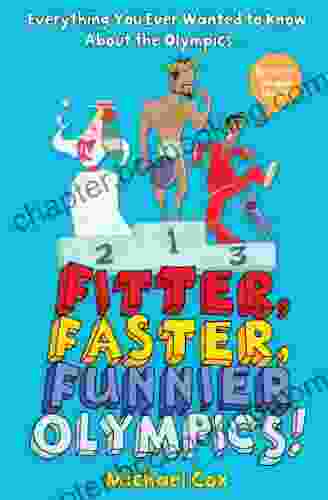
 Gabriel BlairEverything You Ever Wanted To Know About The Olympics But Were Afraid To Ask
Gabriel BlairEverything You Ever Wanted To Know About The Olympics But Were Afraid To Ask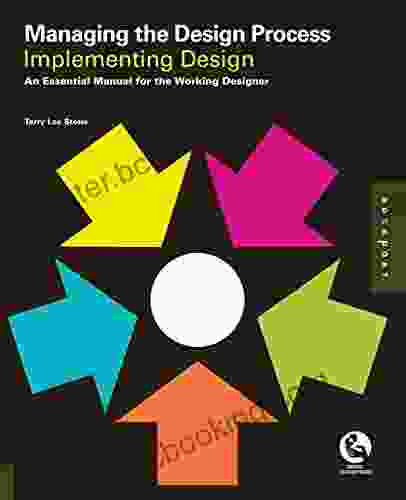
 Cole PowellAn Essential Manual for the Working Designer: The Ultimate Guide to Success...
Cole PowellAn Essential Manual for the Working Designer: The Ultimate Guide to Success... Italo CalvinoFollow ·16.1k
Italo CalvinoFollow ·16.1k Kenzaburō ŌeFollow ·2.1k
Kenzaburō ŌeFollow ·2.1k Jeff FosterFollow ·15.3k
Jeff FosterFollow ·15.3k Dallas TurnerFollow ·11.3k
Dallas TurnerFollow ·11.3k Dan HendersonFollow ·5.3k
Dan HendersonFollow ·5.3k Herman MitchellFollow ·4.6k
Herman MitchellFollow ·4.6k Carl WalkerFollow ·9.4k
Carl WalkerFollow ·9.4k W.B. YeatsFollow ·8.7k
W.B. YeatsFollow ·8.7k
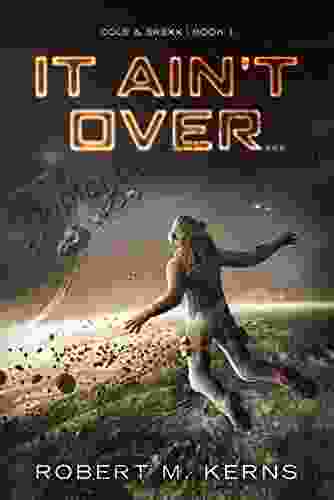
 Trevor Bell
Trevor BellUncover the Thrilling Mystery in "It Ain't Over, Cole...
Prepare yourself...
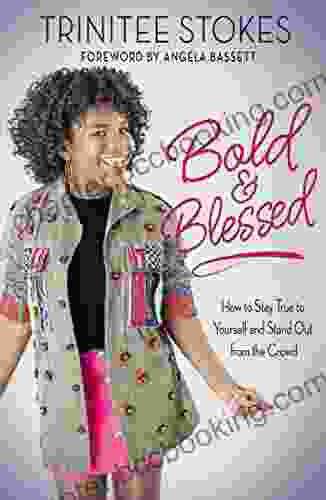
 Garrett Bell
Garrett BellHow to Stay True to Yourself and Stand Out From the Crowd
In a world that...
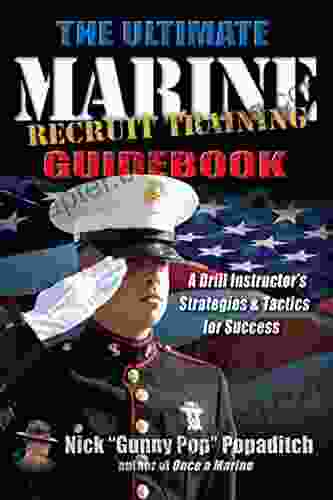
 Dennis Hayes
Dennis HayesDrill Instructor Strategies And Tactics For Success
Unleash Your Inner Warrior and Conquer...

 Guy Powell
Guy Powell101 Awesome Women Who Changed Our World: A Celebration of...
Throughout history,...
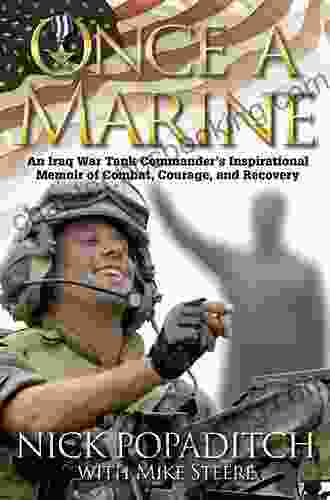
 Ashton Reed
Ashton ReedAn Iraq War Tank Commander's Inspirational Memoir of...
When he was just 19 years old, John Q....

 Dean Cox
Dean CoxLady Trader in the Transvaal: A Literary Safari through a...
Prologue: A Journey into the...
4.7 out of 5
| Language | : | English |
| File size | : | 692 KB |
| Text-to-Speech | : | Enabled |
| Screen Reader | : | Supported |
| Enhanced typesetting | : | Enabled |
| Print length | : | 322 pages |


